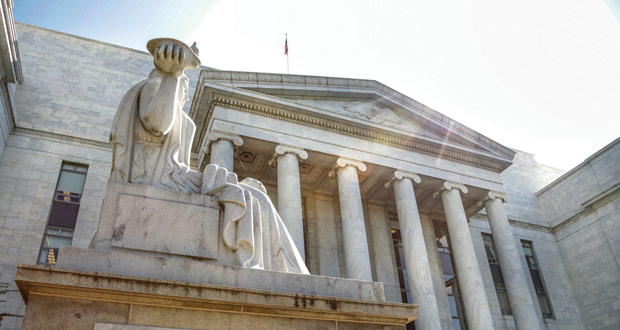With the appointment of John Ring as the new chairman of the National Labor Relations Board (NLRB), the saga over the joint-employer standard that began in 2015 may seem close to a resolution. However, without a statutory fix by Congress, we may only be approaching the end of the second act.
When the political appointees and unelected bureaucrats at the NLRB decided to disregard 30 years of commonsense precedent regarding the joint-employer standard, it threw the franchise business model into uncertainty. Since then, a surprise reversal in late 2017 briefly returned stability to the industry and sensibility to government before it was overturned on a technicality. This seesawing between political point scoring and common sense continues to threaten the future of the franchise industry, as well as the futures of hoteliers who rely on the proven franchise business model to build successful hotels that create jobs in and generate tax revenue for our communities.
Chairman Ring’s confirmation and his recent public comments about using the rule-making process to clarify the uncertainty surrounding the standard created by the 2015 Browning-Ferris Industries ruling are certainly encouraging. That said, even if the NLRB returns to the historical joint-employer standard, there is nothing stopping future administrations from making policy changes that would disrupt a business model that serves as an on-ramp to success for so many entrepreneurs.
When the Obama-era NLRB decided to make small business big, entrepreneurs and congressional champions of our nation’s free enterprise system leapt into action. They introduced H.R. 3441, the bipartisan “Save Local Business Act,” a bill that seeks to create a statutory definition of the historical joint-employer standard. The bill states, in part, that:
A person may be considered a joint employer in relation to an employee only if such person directly, actually, and immediately, and not in a limited and routine manner, exercises significant control over essential terms and conditions of employment, such as hiring employees, discharging employees, determining individual employee rates of pay and benefits, day-to-day supervision of employees, assigning individual work schedules, positions, and tasks, or administering employee discipline.
This is significant because it would ensure that franchisors located hundreds, maybe even thousands of miles away from a franchisee, with no role in the day-to-day operations of that small business owner’s business or control over their employees, would not bear any responsibility for or control over someone else’s employees. In other words, local businesses would remain locally controlled.
I’ve written and spoken about this matter extensively since 2015 because it is of such vital importance to the tens of thousands of hoteliers and the hundreds of thousands of workers they employ. Last summer, AAHOA collaborated with the American Hotel & Lodging Association (AHLA) and other franchise advocacy associations to generate enough congressional support for H.R. 3441 that it passed the House of Representatives with bipartisan support. This is the first step in building a statutory backstop that would halt future executive overreach, yet the bill is without a sponsor in the Senate. However, we remain optimistic that a forward-looking senator will champion this legislation this year, especially given Leader McConnell’s recent commitment to continue legislating through the traditional August recess.
The small business owners that drive our nation’s economic engine rarely take a break; it’s time that the Senate followed their example and worked to pass the Save Local Business Act.
About the Author
Chip Rogers is the CEO of the Asian American Hotel Owners Association (AAHOA).
This article originally appeared in LODGING‘s July 2018 print edition.











